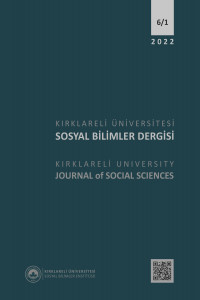Sermaye Piyasasında İslami İlkeler: Seçilmiş Finansal Varlıklar ve Operasyonel İşlemler Üzerine Bir İnceleme
Bu çalışmanın amacı İslami sermaye piyasaları ile ilgili 1990’lı yıllardan bu yana yapılan kalitatif çalışmaları analitik olarak değerlendirip, özgün bir teorik çerçeve oluşturmaktır. Sermaye piyasaları ile ilgili İslami ilkeler, finansal varlıklar ve operasyonel işlemler şeklinde iki temel başlıkta tahlil edilmiştir. Finansal varlıklar başlığı altında imtiyazlı hisse senetleri, tahviller, forward ve futures kontratlar, opsiyon ve SWAP sözleşmeleri inceleme konusu yapılmıştır. Operasyonel işlemler başlığı ise finansal yatırım süreçleriyle ilgilidir. Bu bağlamda spekülasyon, manipülasyon, açığa satış ve marj hesabı konuları ele alınmaktadır. Burada temel amaç fıkhi değerlendirme ve çıkarımlar yapmaktan ziyade, İslam âlimleri ve iktisatçılarının 1990’lı yıllardan bu yana oluşturduğu birikimi finans kuramı bağlamında analitik olarak sınıflandırıp, İslami sermaye piyasaları literatürüne teorik bir zemin kazandırmaktır. İncelenen eserlerde, İslam alimleri ve iktisatçılarının yaygın kanısına göre mevcut yapılarıyla imtiyazlı hisse senetleri, tahviller, forward ve futures kontratlar, opsiyon ve SWAP sözleşmeleri, açığa satış ve faiz karşılığında marj hesaplarının kullanılması İslami yatırımcılar açısından uygun değildir. Ancak spekülasyon meselesi tartışmalıdır. İlk dönem İslam iktisatçıları spekülatif işlemlerin garar unsuru taşıdığını, bu sebeple spekülasyonun İslami sermaye piyasasında uygun olmadığı görüşünde birleşmektedir. Ancak sabit getirili menkul kıymetler hariç, İslami yatırımcıların kâr zarar paylaşımına dayalı olarak hisse senedi yatırımı yapmalarının uygun olduğu, üzerinde görüş birliği olan bir konudur.
Anahtar Kelimeler:
İslami Sermaye Piyasası, Sermaye Piyasasında İslami İlkeler
Islamic Principles For Capital Markets: A Study On Selected Financial Assets And Operational Transactions
The aim of this study is to provide an original theoretical framework by analytically evaluating qualitative studies since 1990s related to Islamic capital markets. Islamic principles regarding capital markets are analyzed under two main headings as financial assets and operational transactions. Under the heading of financial assets, preferred stocks, bonds, forward and futures contracts, options and SWAP agreements are examined. Operational transactions are related to financial investment processes. In this context, speculation, manipulation, short selling and margin accounts are discussed. The main purpose here is not to make legal conclusions and inferences but to classify the academic discussions analytically that has been formed since 1990s, in the context of financial theory and to give a theoretical background to the literature of Islamic capital markets.In the examined works, according to the widespread belief of Islamic scholars and economists, it is not appropriate for Islamic investors to use preferred stocks, bonds, forward, futures, options and SWAP contracts, short sales and margin accounts. However, the issue of speculation is controversial. First-generation Islamic economists argue that speculative transactions have gharar element and therefore speculation is not permissible in the Islamic capital market. However, except for fixed income securities, there is a consensus among modern Islamic economists that it is permissible for Islamic investors to invest in stocks based on profit-loss sharing principle.
___
- Abdul Rahman, N., Shahrim, Z., & Ramli, R. (2014). Understanding Islamic Capital Market. Kuala Lumpur: IBFIM.
- Al-Amine, M. (2008). Risk Management in Islamic Finance: An Analysis of Derivatives Instruments in Commodity Markets. Brill's Arab and Islamic Laws Series. Leiden: Brill.
- Bodie, Z., Kane, A., & Marcus, A. J. (2014). Investments (10nd ed.). The McGraw-Hill/Irwin Series in Finance, Insurance and Real Estate. New York: McGraw-Hill Education.
- Chapra, M. U. (1986). Towards a Just Monetary System: A Discussion of Money, Banking and Monetary Policy in the Light of Islamic Teachings. Leicester.
- Hassan, K., & Mahlknecht, M. (2011). Islamic Capital Markets: Products and Strategies: Wiley.
- Iqbal, Z., & Mirakhor, A. (2011). An Introduction to Islamic Finance: Theory and Practice (2nd ed.). Wiley finance. Singapore: John Wiley & Sons (Asia).
- Ismath Bacha, O., & Mirakhor, A. (2013). Islamic Capital Markets: A Comparative Approach. Wiley Finance Series. Singapore: Wiley.
- Karaman, H. (1994). Menkul Kıymetler Borsası, İslam Açısından Borsa, İstanbul: Ensar Neşriyat.
- Kallek, C. (2000). İhtikâr. Türkiye Diyanet Vakfı İslam Ansiklopedisi, 21, 560-565.
- Mannan, M. A. (1993). Understanding Islamic Finance: A Study of the Securities Market in an Islamic Framework, Islamic Research and Training Institute.
- Muhammad, M., Sairally, B. S., & Habib, F. (2015). Islamic Capital Market: Principles & Practices. Kuala Lumpur, Malaysia: International Shari'ah Research Academy for Islamic Finance; Securities Commission Malaysia.
- Naughton, S., & Naughton, T. (2000). Religion, Ethics and Stock Trading: The Case of an Islamic Equities Market. Journal of Business Ethics, 23(2), 145–159.
- Obaidullah, M. (2001). Ethics and Efficiency in Islamic Stock Markets. International Journal of Islamic Financial Services, 3(2), 145 – 159.
- Sardehi, N. (2008). Islamic Capital Markets: Developments and Challenges. Saarbrücken: VDM Verlag Dr. Müller.
- SEC, t.y. A: Manipulation, Erişim: Mart 2016, (https://www.sec.gov).
- SEC, t.y. B: Understanding Margin Accounts, Erişim: Mart 2016, (https://www.sec.gov).
- Siddiqi, M. N. (1983/1403H). Issues in Islamic Banking. Leicester, London, U.K.: The Islamic Foundation.
- Thomson Reuters. (2016). Islamic Finance Development Report 2016 Resilient Growth, Erişim: Haziran 2017, (https://www.icdps.org).
- Vogel, F. E., & Samuel, H. L. (1998). Islamic Law and Finance - Risk, Religion and Return. Cambridge [England]: Brill.
- Yayın Aralığı: Yılda 2 Sayı
- Başlangıç: 2017
- Yayıncı: Kırklareli Üniversitesi
Sayıdaki Diğer Makaleler
GÖRSEL-İŞİTSEL TEKNİKLER VE MEDYA YAPIMCILIĞI BÖLÜMÜ ÖĞRENCİLERİNİN MESLEKİ ETİK KURALLARINA BAKIŞI
İŞ TATMİNİ: KAVRAMSAL GELİŞİMİ, BİREYSEL VE ÖRGÜTSEL ETKİLERİ, YARARLARI VE SONUÇLARI
ÖĞRENCİLERİN ÖĞRETİM ELEMANI VE DANIŞMAN MEMNUNİYETİ: TEKİRDAĞ NKÜ TEKNİK BİLİMLER MYO ÖRNEĞİ
Hasan METE, Aytekin ERDEM, Gürcan UZAL, Duygu HÜYÜK, Saim ALTAY
Meslek Yüksekokulunda Yapılan Eğitimin Mezunlarının İş Hayatındaki Etkisi Üzerine Bir Araştırma
